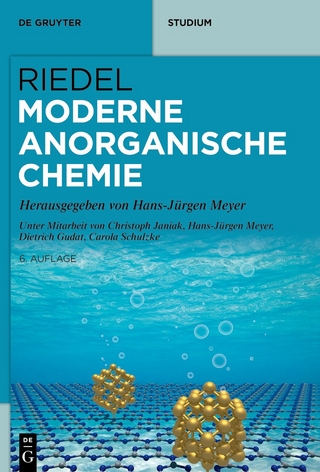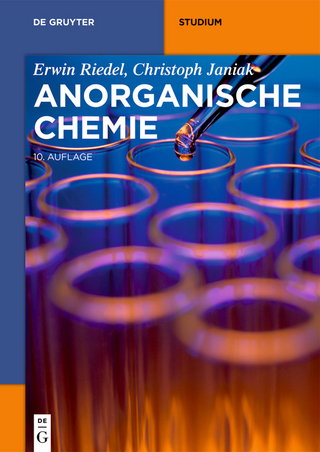Compounds with Noble Gases, H, O, N, F, and Cl
Seiten
1992
|
8. Auflage
Springer Berlin (Verlag)
978-3-540-93655-8 (ISBN)
Springer Berlin (Verlag)
978-3-540-93655-8 (ISBN)
Lese- und Medienproben
- Titel ist leider vergriffen;
keine Neuauflage - Artikel merken
The volume covers the interactions and compounds of gold with noble gases, hydrogen, oxygen, nitrogen, fluorine, and chlorine. Along with the expanding use of gold in recent years, for example in electronics and in aerospace equipment, there has been an impressive series of advances in the chemistry of gold compounds and of discoveries of unusual oxidation states. Hydrogen forms a nonstoichiometric solid phase, AuHn at high pressures with a maximum value of n=0.43. Hydrides such as AuH exist only in the gaseous state. The predominant oxide is that of gold(III), Au2O3. The lower-valent oxides Au2O and AuO form during anodic oxidation of gold. There still is no evidence for definite gold(I) and gold(II) fluorides, whereas AuF3 is stable below 500oC, while it is immediately decomposed by water. The first pentavalent gold compound, (Xe2F11)AuF6, was synthesized in the early 1970's. Later, a number of new Auv compounds were prepared, among them AuF5. The highest oxidation state of gold ever realized is +7 in the recently synthesized AuF7. The major portion of this volume deals with gold chlorine-compounds. Solid AuCl has a polymeric structure with Au and Cl atoms forming zigzag chains, while the gaseous compound consists of dimeric Au2Cl2 molecules. AuCl2, which was first thought to be a compound of gold(II), actually is a mixed-valence gold(I)-gold(III) compound with the net formula Au4Cl8. The crystal structure of AuCl3 comprises discrete, planar Au2Cl6 molecules. The most important water-soluble gold compounds are the tetrachloroauric acid, HAuCl4, and its sodium and potassium salts, easy to obtain by dissolution of gold in aqua regia. They are used besides AuCl3 to prepare nearly all other gold compounds, mostly in solution via the tetrachloroaurate (III) ion ÄAuCl4Ü-.
| Mitarbeit |
Chef-Herausgeber: Rudolf Keim |
|---|---|
| Verlagsort | Berlin |
| Sprache | englisch |
| Gewicht | 965 g |
| Einbandart | gebunden |
| Themenwelt | Naturwissenschaften ► Chemie ► Anorganische Chemie |
| Naturwissenschaften ► Chemie ► Organische Chemie | |
| ISBN-10 | 3-540-93655-6 / 3540936556 |
| ISBN-13 | 978-3-540-93655-8 / 9783540936558 |
| Zustand | Neuware |
| Haben Sie eine Frage zum Produkt? |
Mehr entdecken
aus dem Bereich
aus dem Bereich
Buch | Hardcover (2024)
Springer Spektrum (Verlag)
64,99 €



